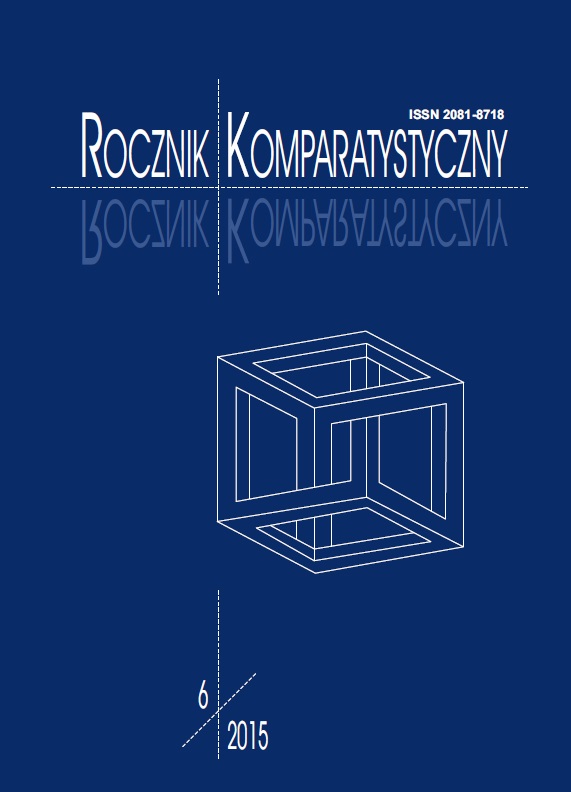Kosmopolityzm awangardy a możliwość pisania regionalnej historii literatury. Przypadek „Zenitu” oraz „L’art contemporain – Sztuka Współczesna”
The Prospect of Writing Regional Literary History in the Context of Avant-Garde Cosmopolitanism: the Case of Zenith and Contemporary Art – L’art contemporain
Author(s): Michalina KmiecikSubject(s): Language studies, Language and Literature Studies, Theoretical Linguistics, Studies of Literature, Comparative Linguistics, Philology, Theory of Literature
Published by: Wydawnictwo Naukowe Uniwersytetu Szczecińskiego
Keywords: avant-garde; zenithism; Central Europe; metarealism; Jan Brzękowski
Summary/Abstract: The avant-garde movements of Central and Eastern Europe are often confronted with the accusation of imitating Western European as well as Russian models. In response to such accusations, they emphasize their cosmopolitan approach to the avant-garde project. This attitude is manifested in a number of journals, multilingual and transnational in character (Contemporary Art – L’art contemporain, Zenith and Integral published in Poland, former Yugoslavia (currently Serbia) and Romania, respectively). In my analysis of the Polish avant-garde journal Sztuka współczesna – L’art contemporain (Contemporary Art – L’art contemporain), launched in 1929 by Jan Brzękowski, I address the relation between French surrealism and Brzękowski’s metarealism by presenting his conception as a manifestation of critical iteration. In my examination of the Serbian journal Zenit (Zenith), I try to show the ways in which the Eastern European avant-garde tried to demystify and dismantle the myths of modern art conceived by Western European artists. I give special consideration to the following: the function of avant-garde journals as a binding force between various centers of avant-garde activity, their role as a platform for Western ideas subject to revision and/or modification by Central European avant-gardists (the problem of influence), as well as their critical/ uncritical approach towards these novelties. Of great significance is the question of the programmatically transnational character of the avant-garde, in the context of which, at least theoretically, the quest for influence while evaluating this phenomenon should be dismissed as irrelevant. Quite conversely, however, it gets consolidated. By asking whether the history of Central and Eastern European avant-garde is pertinent, I propose a model of thinking about the experimental art of that part of Europe dissimilar from the one revolving around imitation.
Journal: Rocznik Komparatystyczny
- Issue Year: 2015
- Issue No: 6
- Page Range: 213-228
- Page Count: 16
- Language: Polish

